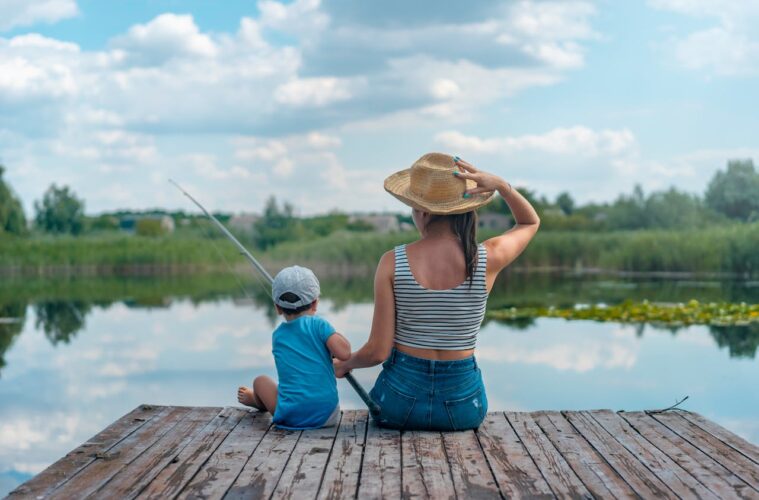Fishing is a fascinating hobby that allows you to relax in nature and enjoy the process of fishing. Whether you’re exploring serene lakes in your local area or venturing to picturesque fishing destinations abroad, this timeless activity pairs perfectly with travel. It offers a unique way to connect with nature while discovering beautiful spots off the beaten path. If you’re planning a fishing-focused getaway or simply looking to unwind by the water on your next trip, having the right knowledge and equipment is key. For beginners, this type of activity may seem difficult: a huge selection of equipment, a variety of techniques, and even ignorance of basic safety rules can be confusing.
First of all, you need to collect high-quality fishing equipment for successful fishing. If you are just starting your journey, we recommend visiting https://emeraldripple.ie/ – here, you’ll find everything you need for beginners and experienced fishermen alike.
In this article, we’ll look at the main aspects that will help beginner fishermen start their journey with confidence.
1. Start with the Basics
When starting out, you don’t need to invest in expensive or complex gear. A simple beginner setup will do the trick. Here’s what you’ll need:
- Rod and Reel: A combo set (a rod and reel sold together) is an ideal choice for beginners. These are often pre-spooled with line, making them ready to use right out of the box.
- Fishing Line: A 6-8 lb monofilament line is a versatile option for most freshwater fish species and is easy to handle for newcomers.
- Hooks and Weights: Keep an assortment of hook sizes and a few weights handy to match different baits and adjust your fishing depth.
Your goal as a beginner is to familiarize yourself with the gear and the process without overspending. Once you’ve gained experience, you can explore more advanced equipment.
2. Stay Organised
Fishing is much more enjoyable when your gear is easy to find and well-organized. A sturdy tackle box with compartments is perfect for storing hooks, sinkers, floats, and other small items. If you’re planning to hike to remote fishing spots, consider a fishing backpack, which provides mobility and convenience.
Handy organizational tips: use small containers or dividers to keep hooks and weights neatly organised. To protect baits or electronics, store them in resealable plastic bags to keep them dry.
3. Essential Tools for a Better Experience
Along with your fishing gear, having the right tools can make your trip smoother:
- Needle-nose pliers: These are indispensable for safely removing hooks or securing sinkers.
- Fishing scissors or line cutters: Perfect for trimming line or fixing knots quickly.
- Utility knife: A multi-purpose tool for cutting bait or tackling other on-the-go tasks.
4. Don’t Neglect Safety
Safety should always be a priority, even during a relaxing fishing trip. Follow these basic precautions:
- Carry a first aid kit: Include bandages, antiseptic wipes, tweezers, and pain relievers to handle minor injuries or accidents.
- Protect yourself from the sun: Use sunscreen, wear a hat, and bring polarized sunglasses to shield your skin and eyes.
- Bug spray is a must: Mosquitoes and other insects can turn a pleasant day into a frustrating experience. Be prepared!
5. Choose the Right Spot and Time
The location and timing of your fishing trip play a huge role in your success. Research local fishing spots, talk to experienced anglers, or explore online forums for recommendations. The best time to fish is often early in the morning or late in the evening when fish are most active. Cloudy days are also excellent for fishing, as many species are more likely to bite.
6. Respect Nature
Fishing isn’t just about catching fish; it’s also about respecting the environment and preserving it for future generations. Always follow local regulations, release fish you don’t plan to keep, and leave no trace—dispose of any trash responsibly. By doing so, you help maintain the balance of aquatic ecosystems.
7. Practical Tips for Beginners
Always inspect your gear before heading out. Check your rod, reel, and line for any signs of damage.
Store baits and other delicate items in waterproof containers to keep them fresh and effective.
Be patient. Fishing is as much about enjoying the process as it is about catching fish.
Fishing is a great way to relax, giving joy and unity with nature. For beginners, it is important to have basic equipment, follow safety rules, and be environmentally conscious. Use these tips to make your fishing trips enjoyable and successful.
So grab a fishing rod and let your first catch be plentiful!

